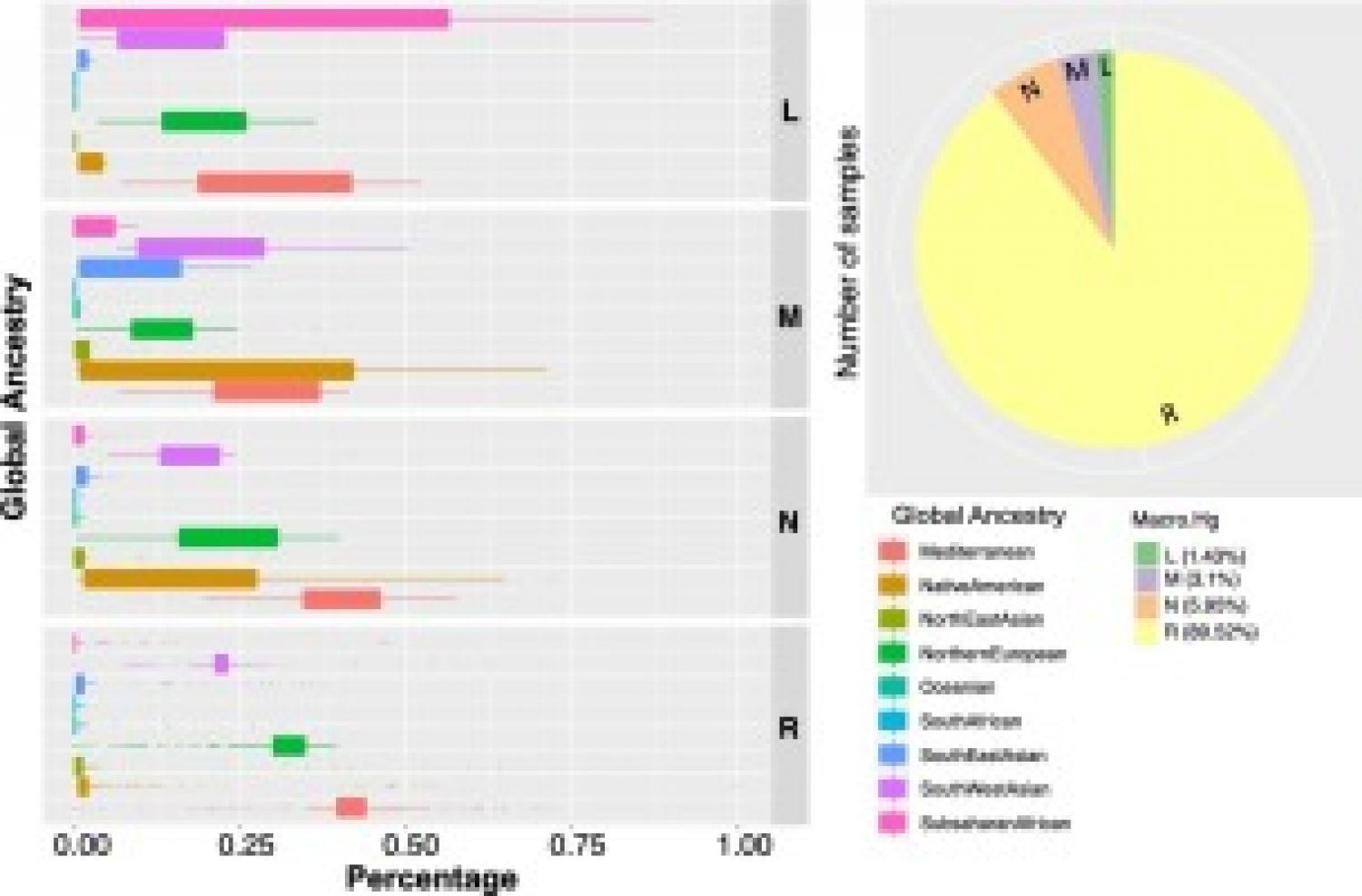
Based on current studies, the incidence of Ewing sarcoma (ES) varies significantly by race and ethnicity, with the disease being most common in patients of European ancestry. However, race/ethnicity has generally been self-reported rather than formally evaluated at a population level using DNA evidence. Additionally, mitochondrial dysfunction is a hallmark of ES, yet there have been no reported studies of mitochondrial genetics in ES. Thus, we evaluated both the mitochondrial and nuclear ancestries of 420 pediatric ES patients in the United States using whole-genome sequencing. We found that the mitochondrial DNA (mtDNA) genomes of only six (1.4 %) patients belonged to African L haplogroups, while those of 90 % of the patients belonged to macrohaplogroup R, which includes haplogroup H, the most common maternal lineage in Europe. Compared to the general US population, European haplogroups were significantly enriched in ES patients (p < 2.2e-16) and the African haplogroups are significantly impoverished (p < 4.6e-16). Using the ancestry informative markers defined in a National Genographic study, the vast majority of patients exhibited significant nuclear ancestry originating from the Mediterranean, Northern Europe, and Southwest Asia, including all six patients with African L mtDNAs. Very few had primarily African nuclear ancestry. This is the first genomic epidemiology study to simultaneously interrogate the mitochondrial and nuclear ancestries of ES patients. While supporting previous findings of enriched European ancestry in ES patients, these results also suggest alternative hypotheses for the significant contribution of mitochondrial ancestry in ES patients, as well as the protective role of African ancestry.
